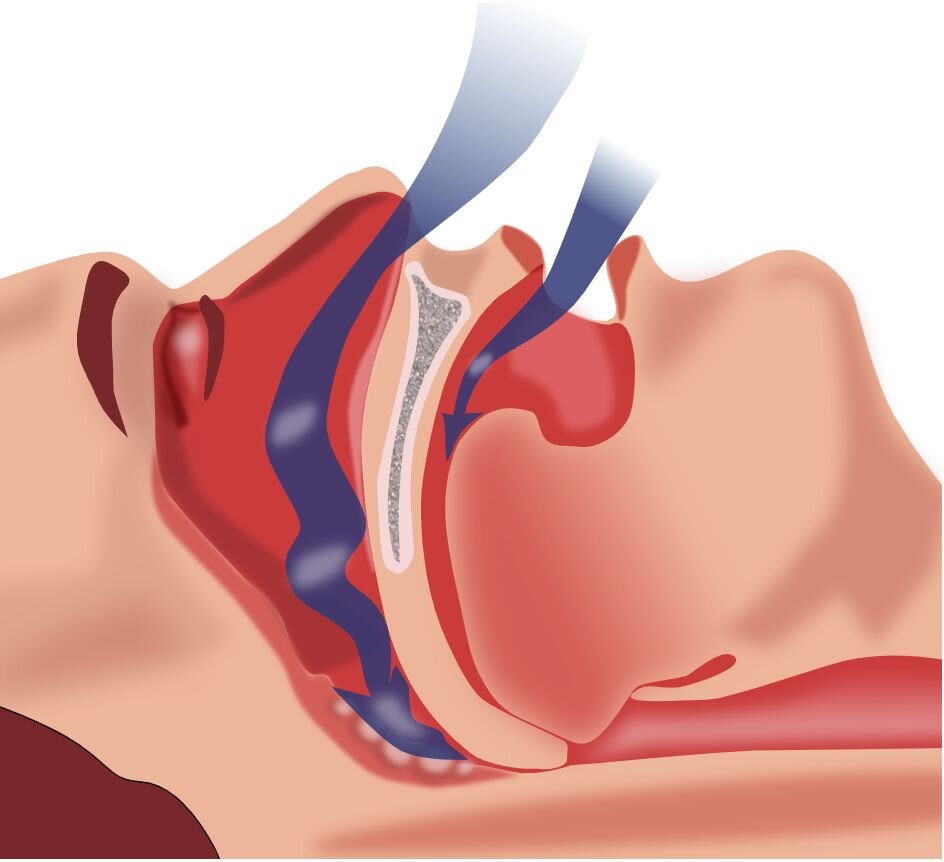Eradivir, a preclinical biotech company, has developed a patent-pending antiviral therapeutic that reduces lung viral loads of advanced-stage influenza in preclinical studies quicker and more effectively than currently available therapies.
A single intranasal dose of EV25, a bispecific small molecule developed by Eradivir, acts faster than the current standard of care, eliminating the detectable virus within 24 hours. EV25 also has a window of efficacy of 96 hours postinfection, which is broader than the current standard of care.
A research paper titled “Targeted recruitment of immune effector cells for rapid eradication of influenza virus infections” has been published in the peer-reviewed Proceedings of the National Academy of Sciences.
EV25 was built on a platform created by Philip Low, the Presidential Scholar for Drug Discovery and the Ralph C. Corley Distinguished Professor of Chemistry in Purdue University’s College of Science. He is part of Purdue’s One Health initiative and on the faculty of the Purdue Institute for Drug Discovery and the Purdue Institute for Cancer Research. Low is Eradivir’s chief scientific officer and on its board of directors.
He disclosed the immunological innovations to the Purdue Innovates Office of Technology Commercialization, which has applied for patents to protect the intellectual property. OTC licensed the innovations to Eradivir for further development and commercialization.
Serious threats posed by influenza
Imrul Shahriar, a scientist at Eradivir, said the influenza virus remains a serious health threat for multiple reasons. One is that current FDA-approved drugs are only effective when administered early during an influenza infection, but they are less effective when administered in later stages of the disease.
“This emphasizes the need for a therapy that can treat more severe infection,” he said. “Familiarity with influenza may mollify public concerns about its risk, but infections still cause tens of millions of illnesses and medical visits annually in the United States, hundreds of thousands of hospitalizations, and tens of thousands of deaths.”
Other reasons influenza remains a serious health problem are:
- Only 50% of people in the U.S. get vaccinated, and the effectiveness of current vaccines ranges from only 19% to 60%.
- Current therapies are less effective against some strains of the flu as they mutate.
- Pandemic strains of the flu like the current H5N1 avian strain may mutate enough to be transmitted from animals to people and eventually from people to people. They are now being transmitted to dairy cattle that, in turn, are infecting people.
Developing and testing EV25
Shahriar, who recently earned his PhD in Low’s laboratory, said EV25 reduces viral loads of advanced-stage influenza in two ways.
“It binds and inhibits viral neuraminidase expressed on both free virus particles and virus-infected cells,” he said. “It also recruits naturally occurring antibodies to fight the virus.”
Shahriar said tests showed EV25 lowered secretions of pro-inflammatory markers and protected against virus-induced damage to lungs better than current therapies.
“As a result, we believe that combining an immunotherapy with a chemotherapy in a single pharmacological agent constitutes a promising new approach for treating the more challenging forms of influenza virus infection,” he said.
Next development steps
Recently EV25 was approved by the European and Belgian regulatory agencies to be used in a Phase 1 human trial that will conclude early next year. Shortly following the Phase 1 trial, a Phase 2a trial will be conducted to further establish the safety and begin to define the efficacy of EV25. Data from the Phase 2a will be available in July 2025.
Eradivir at OPTIONS XII
Jeffery Nielsen, vice president for research and development at Eradivir, presented information on two Eradivir drug compounds during OPTIONS XII, a global scientific conference focused on influenza held Sept. 29-Oct. 2 in Brisbane, Australia.
The poster presentation “Ligand-Targeted Immunotherapy for the Rapid Clearance of Influenza Infections” disclosed data about EV25. It won the Best in Clinical Science and Vaccinology award at the conference.
The oral presentation “Novel Ligand-Targeted Immunotherapy for the Treatment of Human Respiratory Syncytial Virus (RSV)” disclosed data about Eradivir’s small-molecule therapy to treat human RSV infections in all age groups.
Both EV25 and the RSV therapeutic are built on the BAiT platform, or Bispecific Antigenic immunoTherapy, developed at Purdue.
“It was tremendous that presentations about both therapeutics were accepted at OPTIONS XII, the premier conference on influenza and respiratory viruses,” Nielsen said. “EV25 is a game changer in how effective it is compared to existing therapeutics in preclinical models. The RSV drug is another game changer because it rapidly clears out infection in preclinical models; there are currently no therapies to treat a person who has been infected with RSV.”

